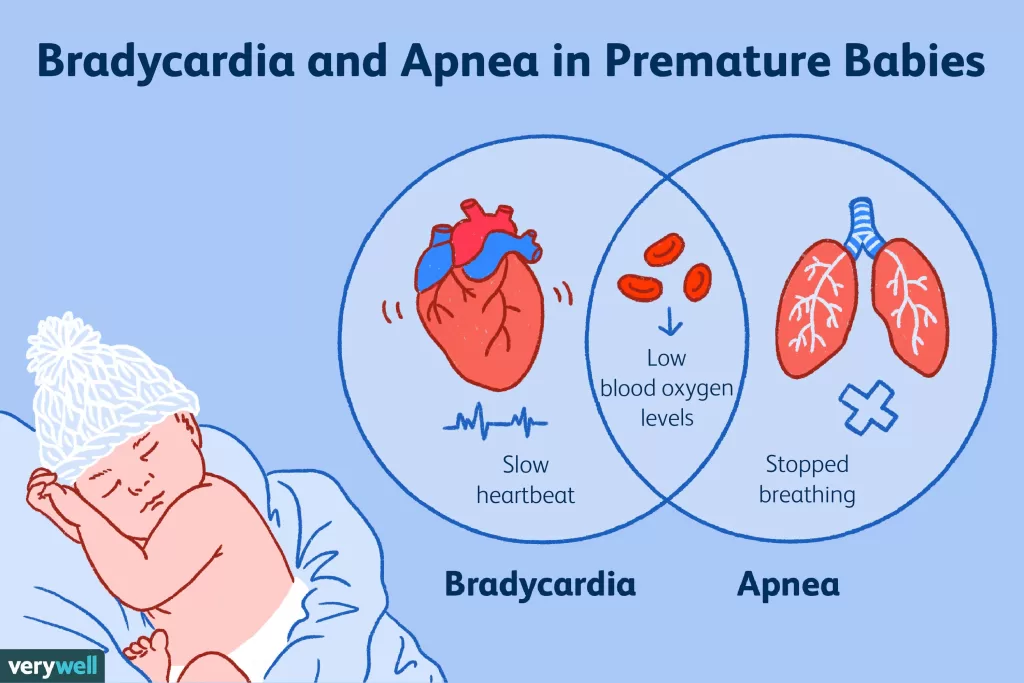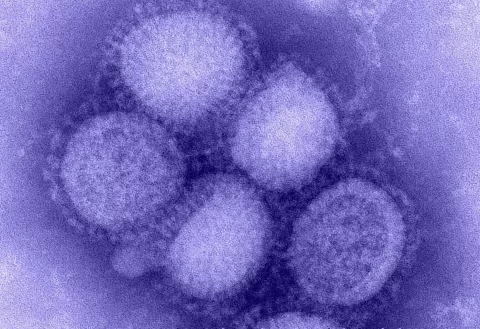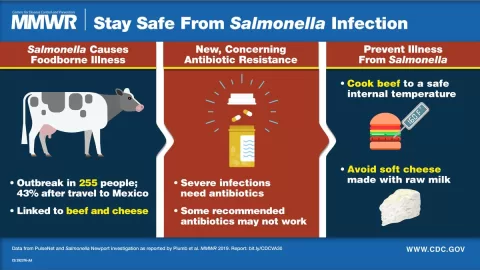Apnea in vaccinated preterm infants has emerged as a significant concern in neonatal care, particularly following routine vaccinations. Recent studies indicate that 24% of hospitalized preterm infants experience at least one apnea episode within 48 hours post-vaccination, a stark contrast to the 10% incidence seen in their unvaccinated counterparts. While the data shows that the average number and duration of these apnea episodes do not significantly differ between the two groups, the perceived risk of apnea following vaccinations influences many parents’ decisions regarding vaccination – often leading to underimmunization. Moreover, the neonatal vaccination guidelines recommend that preterm infants receive their routine vaccinations at the same chronological age as term infants, emphasizing the need for comprehensive education on vaccination effects in infants. Addressing the apnea risk in preterm populations post-vaccination is crucial to ensure these vulnerable infants receive necessary immunizations without undue fear from caregivers.
The phenomenon of apnea in recently vaccinated premature babies illustrates a pressing issue within neonatal healthcare. In the wake of immunizations, many preterm infants may face breathing interruptions, which are categorized as apnea episodes, posing questions around their post-vaccination experiences. Understanding the implications of routine vaccines on these infants highlights the balance between ensuring their safety and fostering adherence to vaccination schedules. Thus, it becomes vital for healthcare professionals to provide insights into both the potential apnea risk and the lifelong benefits of vaccination against infectious diseases. As we delve deeper into this subject, the importance of robust neonatal health practices is underscored, reinforcing the need for continued education and guidance in the context of infant health and immunization.
Understanding Apnea in Vaccinated Preterm Infants
Apnea in vaccinated preterm infants is a critical topic, especially in light of recent findings showing a higher incidence of apnea episodes following routine vaccinations. In the study conducted by Duke University, it was revealed that 24% of preterm infants who received their routine vaccinations experienced at least one apnea event within 48 hours post-vaccination. This is a significant increase compared to the 10% observed in unvaccinated infants. Apnea, defined as a pause in breathing lasting longer than 20 seconds, poses a unique challenge in the neonatal intensive care unit (NICU) where these vulnerable infants are treated.
The implications of these findings are profound as they highlight the need for awareness and careful monitoring of vaccinated preterm infants. Despite the increased occurrence of apnea episodes, the average number and duration of these episodes did not significantly differ between the vaccinated and unvaccinated groups. This suggests that while apnea episodes may be more prevalent, they are not necessarily more severe or prolonged, which is reassuring for healthcare providers and families alike.
The Link Between Vaccination and Apnea Episodes
Research indicates that the risk of apnea in preterm infants post-vaccination is a concern that may influence vaccination rates among this population. Findings from the recent clinical trial emphasized that clinicians should continue to promote vaccination amongst preterm infants as per the existing neonatal vaccination guidelines. The data shows that despite the increased rate of apnea episodes, there are no serious adverse events associated with vaccinations, making them safe for this vulnerable group.
Surprisingly, the study observed that only half of the preterm infants discharged from NICUs after extended stays were fully vaccinated. This underimmunization trend can largely be attributed to fears surrounding post-vaccination apnea. Efforts to educate families and healthcare providers about the actual risks associated with vaccinations for preterm infants, including a focus on reassuring data regarding apnea episodes, are crucial for improving vaccination compliance.
Current Findings and Vaccination Guidance for Preterm Infants
The latest findings provide strong support for the current vaccination guidelines which advocate for administering routine vaccines to preterm infants at two months chronological age. By understanding the dynamics of post-vaccination apnea risk, neonatal clinicians can deliver evidence-based anticipatory guidance. This is essential not only for ensuring that preterm infants receive their scheduled vaccinations on time but also for alleviating parental concerns surrounding the potential for apnea.
The study corroborates that while there is an elevated risk of apnea episodes in vaccinated preterm infants, the overall safety profile of these vaccinations remains intact. Clinicians are encouraged to foster conversations with parents, discussing the study’s results that found no serious adverse events and highlighting the importance of vaccinations in protecting these infants from infectious diseases. Ultimately, addressing these concerns will help to improve long-term health outcomes for preterm infants.
Implications of Routine Vaccination on Infant Apnea Risk
The implications of administering routine vaccinations to preterm infants extend beyond immediate health concerns, intertwining with long-term immunization strategies. The increased incidence of apnea episodes observed following vaccinations must be carefully communicated to parents to ensure informed decision-making while also balancing the benefits of vaccination. Strong evidence suggests that preterm infants face significant health risks from infectious diseases, making vaccinations critical despite the potential for transient apnea.
Despite the observed rates of apnea post-vaccination, healthcare providers emphasize that the benefits greatly outweigh the risks. Delivering routine vaccinations according to established guidelines ensures that preterm infants are protected from potential infections that could be debilitating or hazardous. This balance of risk versus benefit must remain the cornerstone of discussions among clinicians, parents, and caregivers.
Preterm Infants and the Need for Timely Vaccinations
Timely vaccinations are vital for preterm infants due to their increased vulnerability to infections. The study underscores the importance of following neonatal vaccination guidelines that advocate for immunization at the same chronological age as term infants. With appropriate monitoring in place, healthcare providers can safely administer vaccinations, mitigating fears around apnea occurrences related to these procedures.
Unfortunately, misinformation surrounding vaccination risks, particularly concerning apnea, contributes to the lower immunization rates in this vulnerable group. Education efforts must be intensified in NICUs to ensure that caregivers are acutely aware of the facts surrounding vaccinations and potential side effects, including the observed apnea episodes, which may promote a more proactive approach toward immunization.
Monitoring Apnea Episodes in Hospitalized Preterm Infants
In light of the documented increase in apnea episodes among vaccinated preterm infants, careful monitoring in the hospital setting is paramount. Healthcare providers are encouraged to implement systematic screening for apnea events following vaccinations to ensure timely intervention if necessary. This approach not only safeguards the health of these infants but also reassures parents about the medical oversight during this critical developmental period.
Furthermore, established protocols should include guidelines on how to manage observed apnea episodes in vaccinated preterm infants. Effective monitoring strategies and prompt response measures can enhance the overall safety of vaccinations and uphold confidence in the immunization process. Continuous training and resources for NICU staff regarding the management of apnea will help ensure the best outcomes for preterm infants during their vaccination schedule.
The Role of Education in Reducing Vaccine Hesitancy
A crucial aspect of increasing vaccination rates among preterm infants revolves around education aimed at both parents and healthcare practitioners. Understanding the actual risks and benefits associated with vaccinations can help dispel myths that often lead to hesitancy. Health professionals need to clearly communicate that while apnea episodes may be more common post-vaccination, they are generally not serious and do not outweigh the health benefits vaccinations provide for preterm infants.
Educational initiatives could involve workshops, informational brochures, and one-on-one discussions that focus on scientifically-backed information regarding the vaccination process for preterm infants. Tailored educational materials addressing the specific concerns associated with preterm infants’ apnea risk can empower parents to make informed decisions and ultimately lead to better immunization outcomes in this vulnerable population.
Long-term Health Outcomes of Vaccinated Preterm Infants
The long-term health outcomes for vaccinated preterm infants remain a focal point as healthcare practitioners advocate for vaccinations within this demographic. Vaccines are essential for providing protection against severe diseases and conditions that can have lasting implications for preterm infants who are already at greater risk of morbidity. Understanding the long-term impact of vaccination on preterm infants can help alleviate concerns about post-vaccination apnea episodes.
As additional studies emerge, insights into the sustained benefits of routine vaccinations for preterm infants will foster greater confidence among parents and clinicians alike. Regular follow-ups and assessments of vaccinated preterm infants can shed light on health trajectories and the management of any apnea episodes that may occur during the early stages of life. Ultimately, fostering awareness of the long-term benefits will be key in ensuring that these infants receive the necessary vaccinations for healthy development.
Future Research Directions on Apnea in Preterm Infants
Future research is essential to further explore the relationship between routine vaccinations and the incidence of apnea episodes in preterm infants. Investigating the underlying mechanisms of this response and identifying potential risk factors could pave the way for enhanced clinical guidelines. Moreover, larger longitudinal studies focusing on immunization effects in preterm infants can offer a more comprehensive understanding of vaccination outcomes.
Exploring the effects of different vaccine formulations or sequencing may also yield critical data that can improve current vaccination strategies for preterm infants. Continued research on this topic will not only help clarify the relationship between vaccinations and apnea but will also contribute significantly to the body of knowledge surrounding neonatal health, ultimately guiding future policies and practices in neonatal care.
Frequently Asked Questions
What is the apnea risk in vaccinated preterm infants after routine vaccinations?
Apnea is notably more common in vaccinated preterm infants, with a study showing that 24% experienced at least one apnea episode within 48 hours post-vaccination. In contrast, only 10% of unvaccinated infants had similar episodes, indicating a heightened apnea risk associated with routine vaccinations in this vulnerable population.
How do vaccination effects in infants relate to apnea episodes?
Vaccination effects in infants, particularly in preterm infants, can include an increase in apnea episodes. The study highlights that although vaccinated preterm infants experienced more apnea events, the severity and duration of these episodes did not significantly differ from their unvaccinated counterparts.
Are there specific neonatal vaccination guidelines for preterm infants concerning apnea?
Yes, neonatal vaccination guidelines recommend that preterm infants receive routine vaccinations at the same chronological age as term infants, specifically at 2 months of age. This approach aims to ensure adequate immunization despite the post-vaccination apnea risk.
What are the implications of routine vaccinations on apnea in preterm infants?
Routine vaccinations have been linked to an increased incidence of apnea episodes in preterm infants. Studies suggest that healthcare providers should reassure parents about the manageable nature of post-vaccination apnea, as no serious adverse events have been reported.
How do healthcare professionals address concerns about infant apnea episodes following vaccinations?
Healthcare professionals are encouraged to provide anticipatory guidance to parents regarding the potential for infant apnea episodes after vaccinations. By sharing evidence-based findings, clinicians can alleviate concerns about the safety and necessity of vaccinating preterm infants.
| Key Points |
|---|
| Hospitalized preterm infants experience a higher incidence (24%) of apnea episodes within 48 hours after routine vaccinations compared to 10% for unvaccinated infants. |
| Despite this increase, the average number and duration of apnea episodes do not significantly differ between vaccinated and unvaccinated groups. |
| The study involved 223 preterm infants aged 6 to 12 weeks, confirming safety with no serious adverse events. |
| Immunized infants received vaccinations against various diseases within 12 hours of randomization. |
| Current guidelines recommend vaccinating preterm infants at the same chronological age as term infants to combat undervaccination. |
Summary
Apnea in vaccinated preterm infants is a notable concern, indicating a higher occurrence of apnea episodes post-vaccination. A recent study shows that while 24% of vaccinated preterm infants experienced apnea within 48 hours of receiving routine vaccinations, the average number and duration of episodes were similar to those of unvaccinated infants. This research supports current vaccine administration guidelines, emphasizing the importance of immunization for preterm infants, who are often underimmunized. Neonatal clinicians should continue providing guidance on the manageable risks of post-vaccination apnea, ensuring these vulnerable infants receive necessary vaccinations promptly.
The content provided on this blog (e.g., symptom descriptions, health tips, or general advice) is for informational purposes only and is not a substitute for professional medical advice, diagnosis, or treatment. Always seek the guidance of your physician or other qualified healthcare provider with any questions you may have regarding a medical condition. Never disregard professional medical advice or delay seeking it because of something you have read on this website. If you believe you may have a medical emergency, call your doctor or emergency services immediately. Reliance on any information provided by this blog is solely at your own risk.








